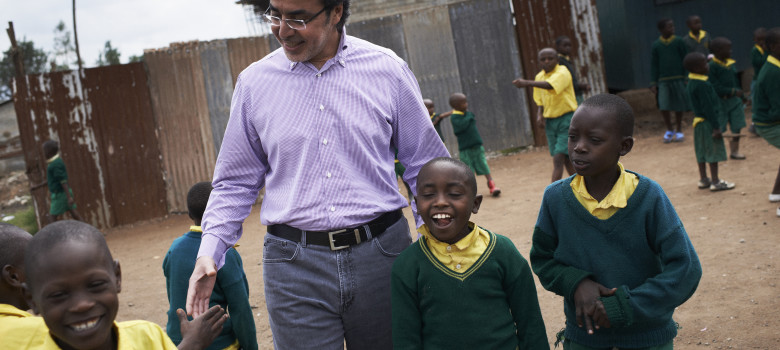In the first initiative of its kind globally, Saudi Arabia’s Al Dabbagh Group is seeking to tackle one of the biggest challenges facing non-government organisations (NGOs) globally: human capacity.
The group has set up Philanthropy University, a free online education platform aimed at supporting the NGO community worldwide. The university, which is receiving on average 1,000 sign ups per day, offers courses designed to build skills and knowledge to address NGOs’ most pressing needs and topics of interest.
“The initiative addresses a very urgent issue. The world is full of challenges, ranging from health to children, the environment; you name it, and this is a product of lack of adequate policies, governance, and a private sector lacking the will to address social concerns,” said Amr Al Dabbagh, chairman and CEO of Al Dabbagh Group.
“This massive vacuum has been filled by millions of NGOs supporting billions of people worldwide. They face the challenge of capacity and how they scale, measure their impact, and sustain their work and offering. Philanthropy University fills that vacuum and offers a global free online platform to support NGOs worldwide with their capacity building.”
The university offers courses on scalability, fundraising, capacity gap and strategic impact, among others. It has collaborated with UC Berkeley Haas and employed “the crème de la crème of faculty members” from different universities and institutions, said Al Dabbagh.
Among its faculty members is Paul Brest, who chairs the curriculum committee at Philanthropy University, is former president of the William and Flora Hewlett Foundation and is the Dean Emeritus at Stanford Law School. Brest is teaching a course titled Essentials of Non-Profit Strategy.
The courses, also known as MOOCs, or massive open online courses, start in September, with seven options to choose from. The university plans to add more each year, adjusting them to meet NGOs requirements. There is no cap on the number of enrollees.
“Our finish line is to impact NGOs supporting 100 million people by 2020,” said Al Dabbagh.
Participants have joined from more than 100 countries, with big representation from India, China, and Africa. Half of them between the age group of 24 and 34, and an equal split between female and male participation. The university is reaching out to homegrown NGOs that require assistance; however, any individual can sign up for the courses.
“We’ve been supporting local NGOs dealing with homegrown challenges and problems. We are bringing our value proposition and UC Berkeley Haas to the doorstep of local NGOs whether small, medium or large,” he said.
The Al Dabbagh Group is a family business operating under three principles – giving, earning and sustaining. Its UK-based Stars Foundation supports NGOs in countries with the highest under-five mortality rate, and helps disadvantaged children in areas of protection, education, health and WASH (water and sanitation).
Its initiatives include the annual Philanthropreneurship Forum, which debates the next generation of best practices in philanthropy.
On financing, Al Dabbagh said the group represented the founding investors, but will welcome other co-investors in the future. He declined to mention the size of the investment, but said it was significant.
“We are strategic philanthropists. We are not chequebook philanthropists. We like to talk about impact rather than how much the cheque value and the dollar sign are, and this is something that I have been advocating,” he said.
“We hear lots of talk about how much x, y and z are putting on the table in terms of endowments and donations, but very little talk about impact and how they are measuring the impact of their dollar.”
Al-Dabbagh Group, headquartered in Jeddah, was founded by former Saudi Minister of Agriculture Sheikh Abdullah Al-Dabbagh in 1962. It employs more than 13,000 people across 57 companies in more than 60 countries. It has business interests in areas of food, housing, petroleum, auto services and packaging. The family’s philosophy of giving started with the founder and has become part of its modus operandi.
“Since 1962 when my father started the family business, for every dollar we’ve been distributing as dividend, we matched it with a philanthropic dollar. This is a tradition that we have religiously followed over the last 50 years,” said Al Dabbagh.
“I think that’s what differentiates our giving from giving practices of other family businesses. The founder decided not to make an endowment and then for the next generation to not practice giving… He wanted every single member of the future generations to practice giving.”







